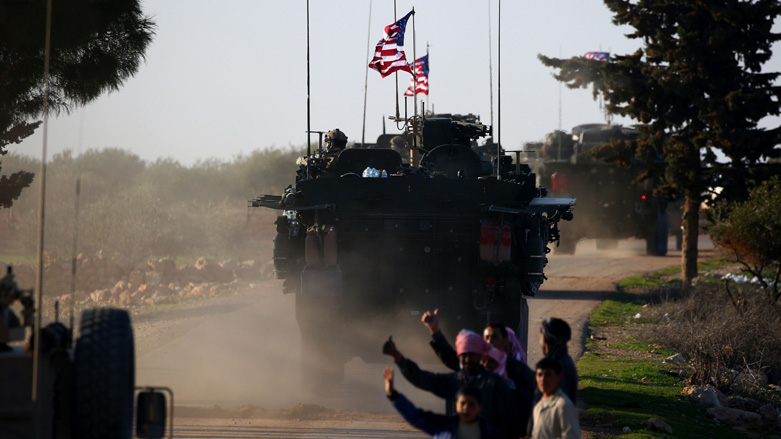Pentagon seems to take ambiguous stand on Manbij

WASHINGTON DC, United States (Kurdistan 24) – The position of the Defense Department on US plans for the Syrian town of Manbij remained unclear, even after reporters repeatedly pressed for clarification on Monday.
Col. Robert Manning, Director of Defense Press Operations, appeared reluctant to express a full-throated US commitment to maintain a military presence in Manbij, even as it was difficult to understand US intentions amid sensitive negotiations with Ankara.
On Monday, Turkish President Recep Tayyip Erdogan threatened to press Turkey’s offensive in Syria beyond Afrin, which Turkish forces had occupied the day before, into Manbij and Kurdish areas further east.
Asked if the US would protect the Kurdish-led Syrian Democratic Forces (SDF), who have been America’s most important partner in fighting the Islamic State (IS) in Syria, Manning replied, “It’s been very clear to all parties that US forces are [in Manbij], and we’ll take measures to make sure that we de-conflict.”
That did not really answer the question. So Kurdistan 24 asked it another way. If US forces remained in Manbij, any Turkish assault on the SDF would endanger them. So did the US intend to remain in Manbij?
“Coalition forces are supporting the local civil council in its efforts to perform security and stabilization tasks in and around Manbij,” was the response. “Due to operational security considerations, we don't announce the movement of military forces.”
A third reporter, still seeking clarity, asked, again, if the US would protect its Kurdish allies in Manbij, and Manning replied, “The US government is working with the Turkish government to resolve a number of shared security interests through the results-oriented mechanism.”
No matter how the question was asked, it produced no clear answer.
The Pentagon’s stance contrasted with that of Turkey. On Monday, Erdogan’s spokesman, Ibrahim Kalin, told an al-Jazeera English live broadcast that a general agreement had been reached on Manbij, and Turkey was waiting for the US to implement it.
That does not seem to be the US understanding, however. On Thursday, State Department Spokesperson Heather Nauert was asked about the claim of Turkey’s Foreign Minister Mevlut Cavusoglu, in which he asserted an agreement had been reached that the Kurdish People’s Protection Units (YPG) would leave Manbij.
“It is not our understanding,” Nauert responded. “We’re still working to reach an agreement with Turkey, and we’re not done talking with them.”
On Monday, a day after Turkish forces occupied Afrin, Nauert issued a strongly-worded statement, affirming that the US was “deeply concerned” about the situation.
“The majority of the population of the city, which is predominantly Kurdish has evacuated under threat of attack from Turkish and Turkish-backed forces,” her statement read, adding, “hundreds of thousands of people have been displaced,” according to UN agencies and now require “immediate shelter and other assistance to meet basic needs.”
Nauert also cited “reports of looting inside the city of Afrin,” as she explained, “we have repeatedly expressed our serious concern to Turkish officials.”
Manning expressed similar concerns at the Pentagon, specifically adding that Afrin lacked drinkable water.
The Turkish assault on Afrin began January 20. Russian forces, rather than American, were present in the area. Moscow could have blocked the attack, but gave Turkey a green light after a series of statements that the US intended to retain its presence in eastern Syria.
Editing by Nadia Riva
